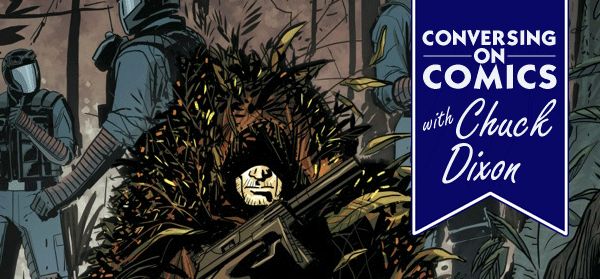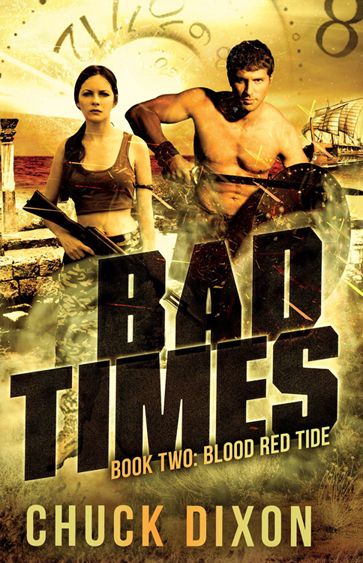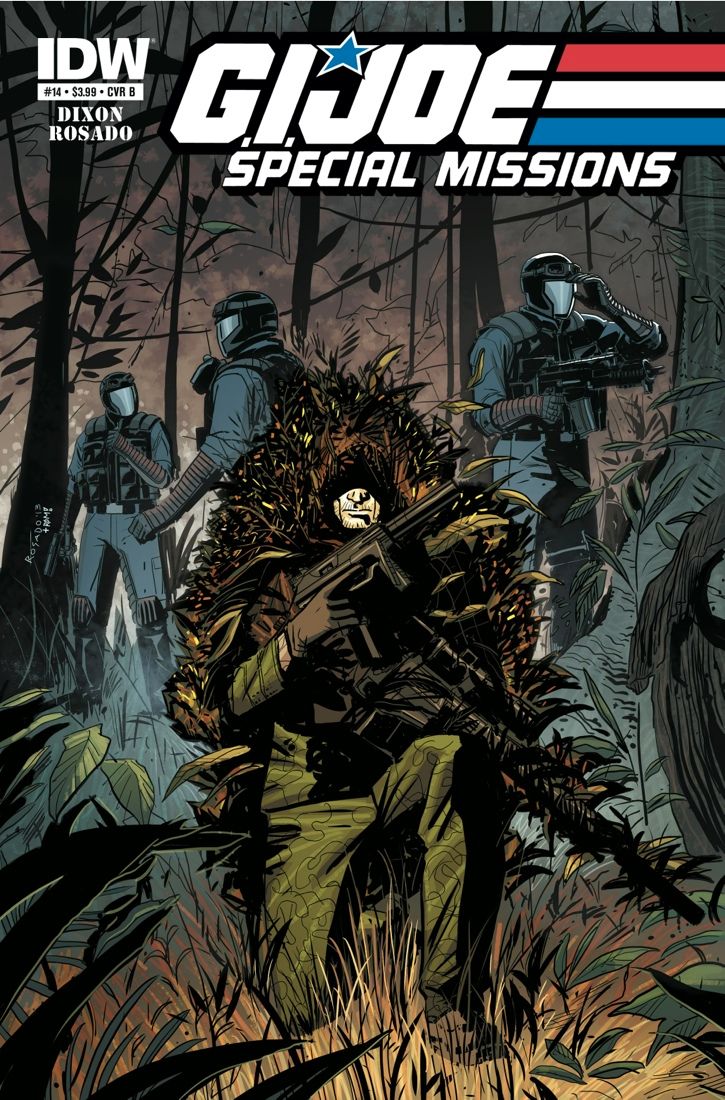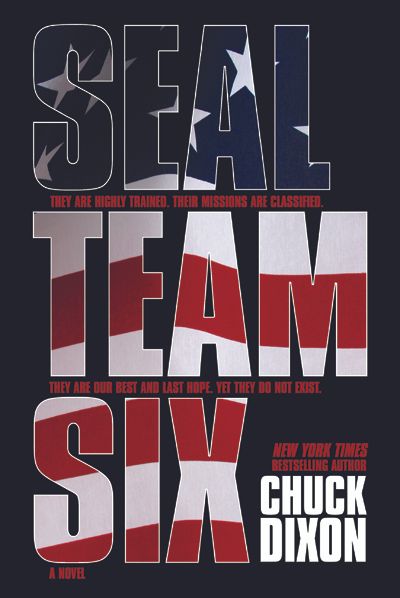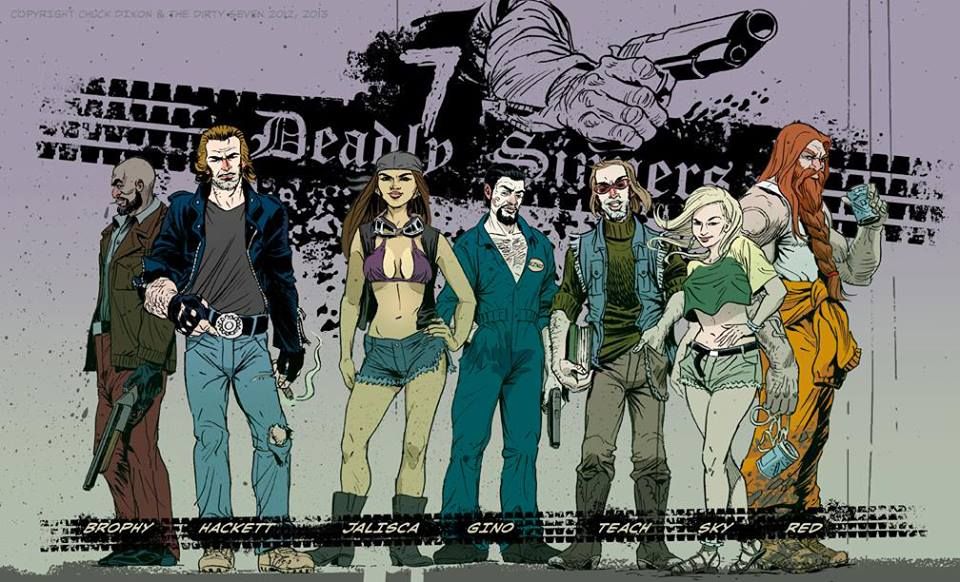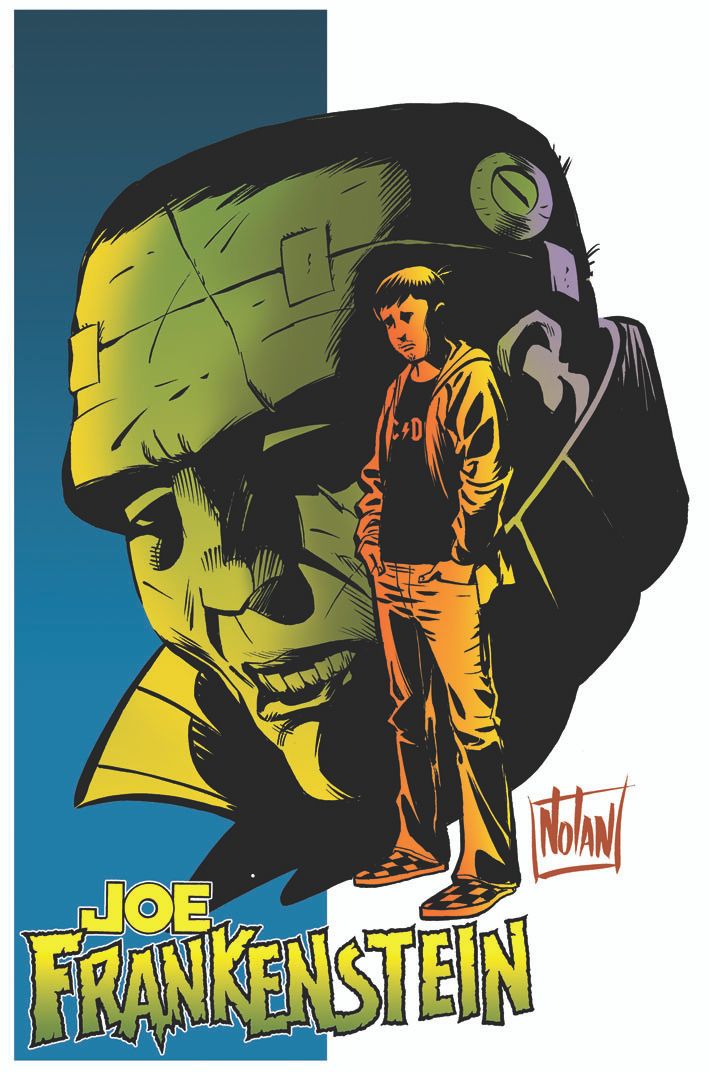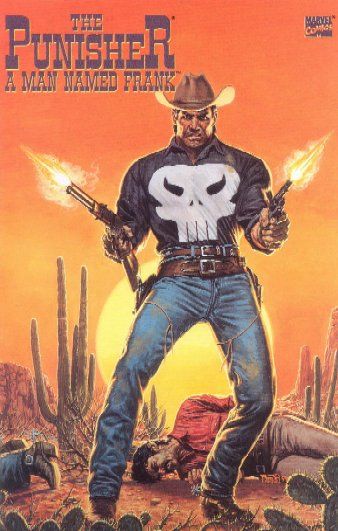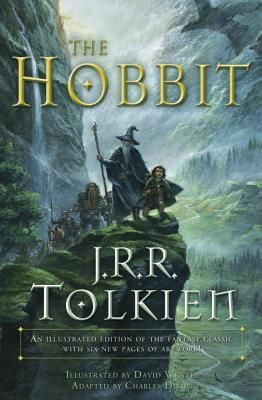Chuck Dixon might be best known for his hard-charging stories of Batman, the Punisher and G.I. Joe, but he's more than a work-for-hire writer -- even though he's good at it. Dixon got his start in creator-owned comics with 1984's Evangline at Comico (and later First), and now after three decades as primarily a hired gun, he's returning to his roots with a renewed vigor and years of experience under his belt.
The co-creator of DC stalwarts like Bane and Birds of Prey tells ROBOT 6 his future looks to be predominately focused on creator-owned comics, and he has no less than three creator-owned projects in the works -- including one with his former collaborator Graham Nolan. That's in addition to his recent foray into prose military fiction; after the success of the SEAL Team Six novels with Dynamite Entertainment, Dixon has gone into business for himself with a new series titled Bad Times, featuring a group of scientists and Special Forces solders who are transported 100,000 years into the past. With his time on G.I. Joe coming to an end with April's G.I. Joe: Special Missions, Dixon's next tour of duty may end up being his greatest yet.
Chris Arrant: What are you working on today?
Chuck Dixon: I just released my second book in the Bad Times series. I’m spending the day letting people know about it. I’m promoting this one on my own and still learning about how to build an audience.
What's been the most interesting part of self-promoting and self-publishing you've learned from doing Bad Times?
Well, I've learned that it's a marathon rather than a sprint. Making people aware of a new book isn't easy. I've also learned that sale build as the series progresses. Each new book adds sales to the earlier volumes. I guess I should have already known that. But each entry sells more of the previous ones.
Earlier this year I received a shock when I read that April’s G.I. Joe: Special Missions #14 would be the series finale. With no other G.I. Joe projects by you announced at the moment, what can you say if this is indeed the end of your tour of duty with G.I. Joe?
I honestly don’t know. I certainly hope not.
I have to ask about this last issue: The solicits promise an unnamed Cobra sniper and G.I. Joe’s own Low Light facing off with them. I remember on more than one occasion you doing stories with snipers. Is that aspect of military fiction something that draws you more than other areas?
Sniping and long-range shooting have always fascinated me. It has all the drama built into it. When it comes down to one shot there’s already a lot of suspense there. I wrote so many sniper stories when I was writing The ‘Nam that my editor asked me to hold off on them for … forever. I have a signed photo of Carlos Hathcock on my office wall. Google him. One deadly dude.
You may be done with G.I. Joe for now, but you’re not done writing. In the past few months you’ve done stories for the Simpsons comics, the SpongeBob SquarePants comics and did a series of prose novels and launched the aforementioned Bad Times series. What was 2013 like for you as a working writer?
Weird. I’m a comic book writer and I’ve never thought of myself as anything else. I’m just as happy on SpongeBob SquarePants as I would be writing Batman or Conan. Sure, I have favorite characters, but it’s the medium I love. The market for my particular set of skills being what it is, I had to expand my horizons. I’m not saying I’m great at prose, but I am getting more comfortable.
I wanted to ask about this prose work you’ve been doing: Of all the writers working in comics today, you seem, based on your comics writing, one of the most ideally suited creators to jump into full prose. How’d this excursion into prose come about originally?
Lots of folks told me I’d be a natural for prose but I never saw it. There’s been a lot of urging from friends and family. I think I intimidated myself. I wrote some anthology stories for small-press publishers but that’s as far as I dabbled.
Nick Barrucci at Dynamite offered the only way I would probably have ever swung at writing a novel. He challenged me to write a book about U.S. Navy SEALs in 30 days to capitalize on the kakking of Bin Laden. I accepted and handed in the first SEAL Team Six book in 28 days. Since then I’ve written four more, and each one felt more natural. The sales have been strong so I decided to start my own series with Bad Times.
Both Bad Times and SEAL Team Six are military fiction, similar in name to your G.I. Joe work but worlds apart in terms of the approach and tone. Can you talk about writing two very different perspectives on military fiction?
Well, the research is still a bear on both titles. But I love reading history so it’s fun for me.
There’s not a WHOLE lot of difference between G.I. Joe and the prose military stuff. But there’s the obvious difference that the Joes are more fantasy than reality; more grand opera to use Larry Hama’s own description of comics. The SEALs books are as grounded in reality as I can make them and fit within my model for an action story.
That model is the better men’s adventure paperbacks of the 1970s. Guys like Charles Whiting and John Benteen. The Bad Times books are time travel so the challenge is to keep my former U.S. Army Rangers in the character of those kind of men no matter what weirdness ensues. I had an Iraq vet recently tell me that I wrote dialogue that the guys in his unit would have actually said. That’s from hours and hours of talking to serving heroes and returning vets.
The prose books are earthier than the Joe comics. The language gets rough and the violence is bloodier. I also establish my own tone when it comes to humor. I always felt, on G.I. Joe, that it was best to try and get into Larry Hama’s quirky brand of humor both as a writer’s challenge and because that’s what Joe fans want.
Creator-owned comics is getting bigger than ever, and it’s something you’re not known for but you actually broke in with, with the sadly missed Evangeline series. With these prose novels you’re doing creator-owned, but have you had any formidable thoughts (or talks) about doing creator-owned comics in the near future?
That is kind of ironic. Or kind of sad. I own a dozen or more properties but they came out in the '80s mostly. Then I was a company man for a decade or so. But I do own Iron Ghost, created in 2004. And I’m currently returning to a property I own that I haven’t worked on in many years. I’m also currently working on Seven Deadly Sinners with master cartoonist Bob Hardin. And Graham Nolan and I are busy with Joe Frankenstein. I have a few more things in the pipeline as well. My future is 90 percnet creator-owned for the foreseeable future.
I didn't know about this new creator-owned stuff. Can you elaborate on what exactly is Seven Deadly Sinners?
It's my homage to '70s car action movies and biker flicks. It's set in the '70s and is a biker version of The Magnificent Seven. A gang of badass riders come together to protect a pot farm under siege from a local landowner. Hippies and bikers versus California rednecks. And Bob Hardin was BORN to draw it. His affinity for anything with wheels and his awesome characterizations are making this a dream project.
And Joe Frankenstein -- can you get us up to speed?
Joe is a young slacker who learns that he's the heir to the Frankenstein legacy. AND the fabled monster has been watching over him all his life, protecting him from supernatural threats of all kind like an undead guardian angel. The story is about Joe taking his place in that world and facing down a global threat from the monsters of his infamous ancestor's past.
On your Dixonverse message board a fan asked you about your work on the Punisher and what stories you’d tell if you had the chance. You talked at length, and ended it with the very enticing line “Hm. Maybe I should create my own Frank Castle.” Can I poke you to elaborate on that idea here for us?
That’s one of those things I always think about but never act on. The fourth book in my SEALs series is in the Punisher mode. Two of the SEALs are acting very much on “what would Frank do?” I just feel that anything I did in that direction would be a pastiche of the Punisher and not the Real Thing.
For many people like myself, you first become known to them for your work at the Big Two – Marvel and DC. You had a very public departure from DC in 2008, and you haven’t really done any Marvel work in over a decade. You don’t have to write for the Big Two to make a living out of it, but are is there any stories or characters in those two worlds you still hope to tell? Any unfinished business?
I certainly could go back and write for the Big Two and I still like the characters very much. But neither they nor myself seem to be particularly motivated to make anything happen.
You’ve had your dalliances with westerns in the past like Justice Riders, The Man With No Name and Lone Ranger, but I remember during your CrossGen days you were chomping at the big to really do a large-scale wWstern book. As someone who’s worked in the industry for decades, why do you think there’s such a reticence to do Westerns – not just for you, but in general?
Don’t forget my Punisher Western!
Hah! Yes!
As much as DC and Marvel are loathe to admit it, wWesterns helped carry them through the 1970s. Jonah Hex was DC’s No. 1 seller for a few years there, and Marvel had a half-dozen titles reprinting Western material. They weren’t publishing them for the fun of it. But it was still all about superguys for the fanboys who were beginning to take over the companies then. And as they moved more toward superheroes, and away from newsstand comics, they left that casual readership behind in favor of appealing to a segment of fandom.
Do you have that idea in mind for a Western comic should the opportunity present itself?
Absolutely.
I'll leave it at that. In preparing for this interview I ran across an interesting factoid: You were in talks to do a rewrite for Sylvester Stallone’s The Expendables 2 but ultimately couldn’t come to terms to do it. Can you talk about that experience?
Sly (he insists I call him that) read an Expendables prequel I wrote and really liked it. I got a phone call from him one morning and, after I determined it wasn’t a friend doing an amazing Stallone impersonation, had the producers fly me out for a meeting. In the end we couldn’t agree on money. But Sly didn’t forget me and got me some work doing web content for Lionsgate, and he’s spoken to me recently about doing something based on a property I own. I can’t explain this unusual level of loyalty from a guy I barely know in a business not known for that kind of thing. I can only guess that he and I kind of clicked when he first spoke on the phone and we often complete each other’s sentences in conference calls.
Speaking more broadly, is doing screenwriting something you’ve thought about? I know your Sword of Wood was optioned a while back.
I did some of that last year for Lionsgate. It’s a form I’m not comfortable in and I’m fine with leaving it to others. I’m better at treatments which I’ve written a boatload of.
Segueing from movies back to comics, your adaptation of The Hobbit is a real treasure when I found it in the 1990s. It’s since been printed, reprinted, translated and exported numerous times and in numerous languages with the release of The Hobbit movies. What do you think about how that adaptation has had such a life – and has there ever been talk of you doing more in that area?
Well, it’s a darned pretty book. And I suppose it’s a good introduction for younger readers who might find the novel daunting. I certainly hope it leads readers to the novel.
The Tolkien estate has NO interest whatsoever in OK'ing further adaptations. They only agreed to authorize The Hobbit because they were cornered into doing it. That’s an interesting story for which the world is not yet prepared.
That's one I can't let lie -- can you tell even a morsel of that in interesting story regarding the comic adaptation of The Hobbit?
Nope. That goes with me to the grave.

